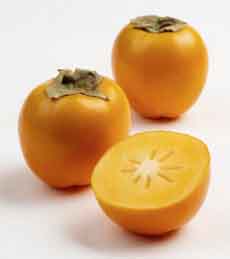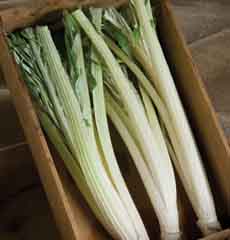TIP OF THE DAY: Winter Fruits & Vegetables
|
Here’s our final installment of seasonal fruits and vegetables. We began this series with spring produce, then summer produce, then fall produce. With the winter season, our “year of produce” is complete. But don’t think of winter produce as bleak and limited. It’s time to revel in different types of citrus, try new fruits and winter squash varieties, and take a look at recipes for items you rarely buy: cherimoya and chestnuts, cardoons and collards. Then, look online for interesting ways to prepare them. If your main food market doesn’t have some of the more specialized items, check international markets that focus on Chinese, Indian, Latin American and other specialties. You can also check online purveyors like Melissas.com. The list was created by the Produce for Better Health Foundation. Take a look at their website, FruitsAndVeggiesMoreMatters.org, for tips on better meal planning with fresh produce. A final tip: Know where your produce comes from. While some imported produce is excellent, others are picked too early and have a long ocean voyage. If you buy something that’s lacking flavor, speak with the produce manager and get recommendations. WINTER FRUITS |

When was the last time you had a persimmon? Persimmons can be eaten as hand fruit, made into tarts and sorbet, baked into muffins, sliced into salads, turned into mousse and more. Photo courtesy Foods From Spain. |
|
|
*The date plum, also known as the lotus persimmon, is the variety known to the ancient Greeks as “the fruit of the gods.” Its English name probably derives from the Persian khormaloo, literally “date-plum,” referring to its flavor, reminiscent of both dates and plums. Sharon fruit is an Israeli cultivar of persimmon, called Triumph. The fruit is named for the Sharon Plain where it is grown. Sharon fruit” has no core, is seedless and particularly sweet. It can be eaten whole. You may find still other varieties of date plums in your market. |
||
 Not a variety of celery, these stalks are cardoons, a member of the artichoke family. If you’re an artichoke lover, snap them up: They taste like artichokes without the bother of the thorns and the fur. Photo courtesy Johnnyseeds.com. |
WINTER VEGETABLES Farmers markets are our go-to place for something different. If you don’t see what you’re looking for, ask the farmers if they know where you might find it, or to suggest other items in the market that you shouldn’t pass up. |
|
|
You can search the National Farmers Market Directory for locations near you.
|
||